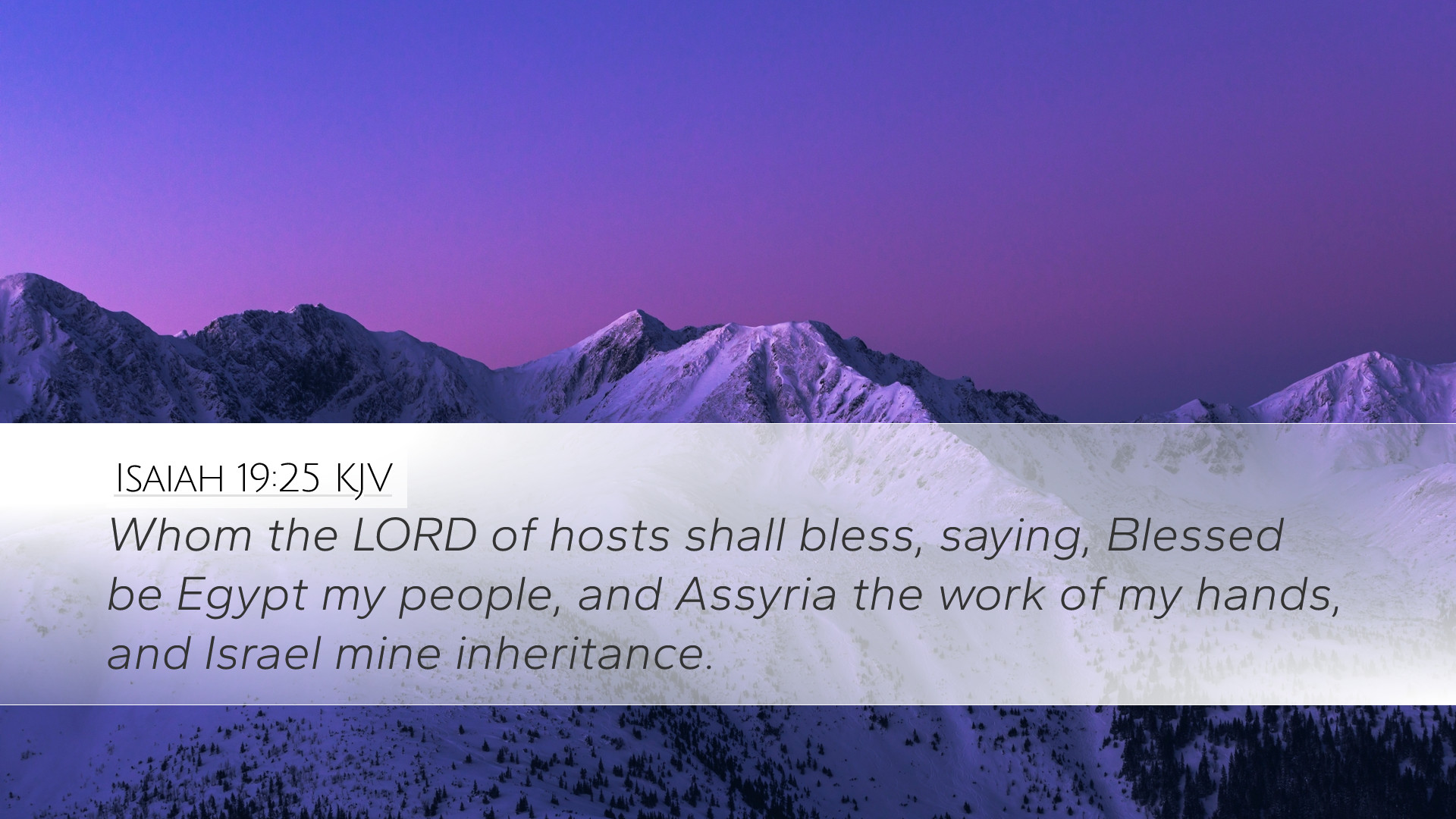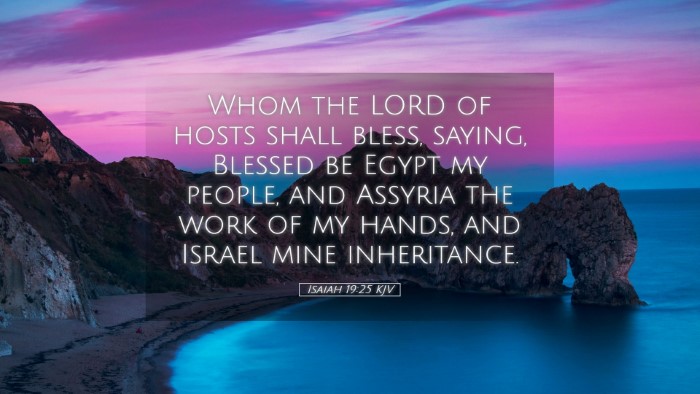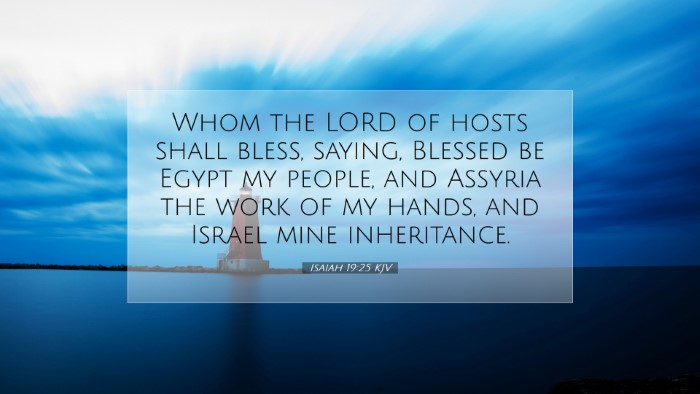Commentary on Isaiah 19:25
Verse: "Blessed be Egypt my people, and Assyria the work of my hands, and Israel mine inheritance." (Isaiah 19:25)
Introduction
This verse from Isaiah expresses God's profound inclusivity and grace. It reflects a future time when the historical enmity between God’s people and their ancient enemies—the Egyptians and Assyrians—will be reconciled. Through this verse, the Lord emphasizes His sovereignty over all nations and His redemptive purpose for humanity.
Exegesis
In studying this verse, we must examine the context within which it was written. The prophecy of Isaiah is a beacon of hope amidst foreboding judgments on Israel and surrounding nations. God declares His intention to bring blessing not only to Israel but also to Egypt and Assyria, indicating a reversal of traditional hostilities.
Understanding the Historical Context
Historically, Egypt and Assyria were often adversaries of Israel. However, Isaiah addresses a profound transformation where these nations will be seen as part of God's community. With regard to the "blessedness," it indicates a state of favor and acceptance by God. This shift denotes a time when God’s grace extends beyond Israel to other nations, illustrating the universal scope of divine mercy.
Theological Insights
The proclamation that "Egypt is my people" is striking. Matthew Henry interprets this as a testimony to God’s open embrace of all who come to Him in repentance, forging relationships across traditional boundaries. Albert Barnes elaborates that God’s creative power extends to all nations and that His work can be both salvific and transformative. This merging of identities shows that God’s plan includes a beautiful tapestry of nations united in worship.
The Role of Assyria
Assyria, often viewed as an instrument of God’s judgment against Israel, is also described as "the work of my hands." Adam Clarke emphasizes that this indicates the potential for restoration. God’s sovereignty is such that He can take a history marked by conquest and turn it into a narrative of redemption. Assyria’s mention here offers a glimpse of the healing power of God, transforming past history into a purposeful future.
Implications for Today
This verse challenges the church and its leaders to embrace a broader conception of community. Just as God included Egypt and Assyria in His plan, so should the church include all people, recognizing that barriers of race, nationality, and past hostility must not hinder the work of God today. The prophetic promise suggests a harmonious existence where diverse peoples worship together.
The Call to Pastors and Leaders
For pastors and church leaders, this passage serves as a clarion call to advocate for reconciliation and unity. They must model God’s inclusiveness and encourage congregations to reach out to those who are marginalized, signifying that the gospel transcends cultural and geographical boundaries.
Conclusion
Isaiah 19:25 poignantly encapsulates God’s universal plan of redemption. It teaches that God is not limited by human opposition or historical precedents. Instead, His ambition is a world filled with His blessing, inclusively acknowledging all who earnestly seek Him. As scholars, students, and pastors dissect this rich text, may they find inspiration for a ministry characterized by radical inclusivity and hope for all peoples.


